National
A US programme triggers new debate on the heels of MCC pact’s passage
American embassy calls a purported SPP draft circulating online as ‘fake’, as questions arise if Nepal is falling into a geopolitical quagmire amid rising global tensions.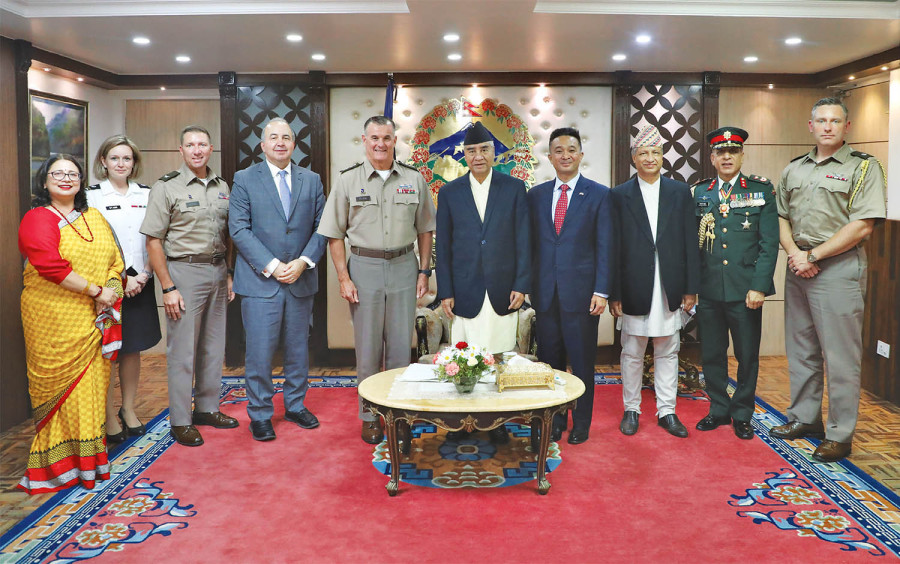
Anil Giri
The American push for Nepal to sign Washington’s State Partnership Program between the Nepal Army and the United States National Guard has triggered a new debate and left the political and intellectual circles divided.
The issue has surfaced just ahead of the visits of Prime Minister Sher Bahadur Deuba and Chief of Army Staff General Prabhu Ram Sharma to the United States.
Gen Sharma is scheduled to visit the US at the invitation of the Pentagon from June 27 to July 1 while Prime Minister Deuba is visiting Washington in mid July, of which a formal announcement is yet to be made.
Nepal’s participation in the State Partnership Program (SPP) got a renewed push last week during the visit of Commanding General of the US Army Pacific Charles Flynn to Nepal.
During his meetings with Prime Minister Deuba and Gen Sharma, Flynn called for signing the SPP.
The Post on June 11 ran a story about the revised content of the six-page proposal that has 10 articles.
Two days later on Monday, a section of the Nepali media reported about the US proposal and released the draft copies, triggering a debate on the possible military-to-military exchange between the two armies.
The issue got traction pretty quickly as it came to the public domain hot on the heels of Nepal’s decision to ratify the Millennium Challenge Corporation (MCC) compact from Parliament despite objections from a certain section of society.
Those opposing the MCC argued—and still argue—that the grant is part of the Washington-led Indo-Pacific Strategy, hence entails a security component, something the US has denied calling it a purely development assistance.
Now some are questioning if signing the SPP would make Nepal part of a military alliance.
The issue was raised even in Parliament on Tuesday.
Foreign Minister Narayan Khadka tried to clarify on Tuesday that Nepal is not joining any military alliance.
“It is just a rumour that we will join the military alliance,” he said while replying to questions by lawmakers surrounding Nepal’s possibility of joining the Indo-Pacific Strategy and State Partnership Program.
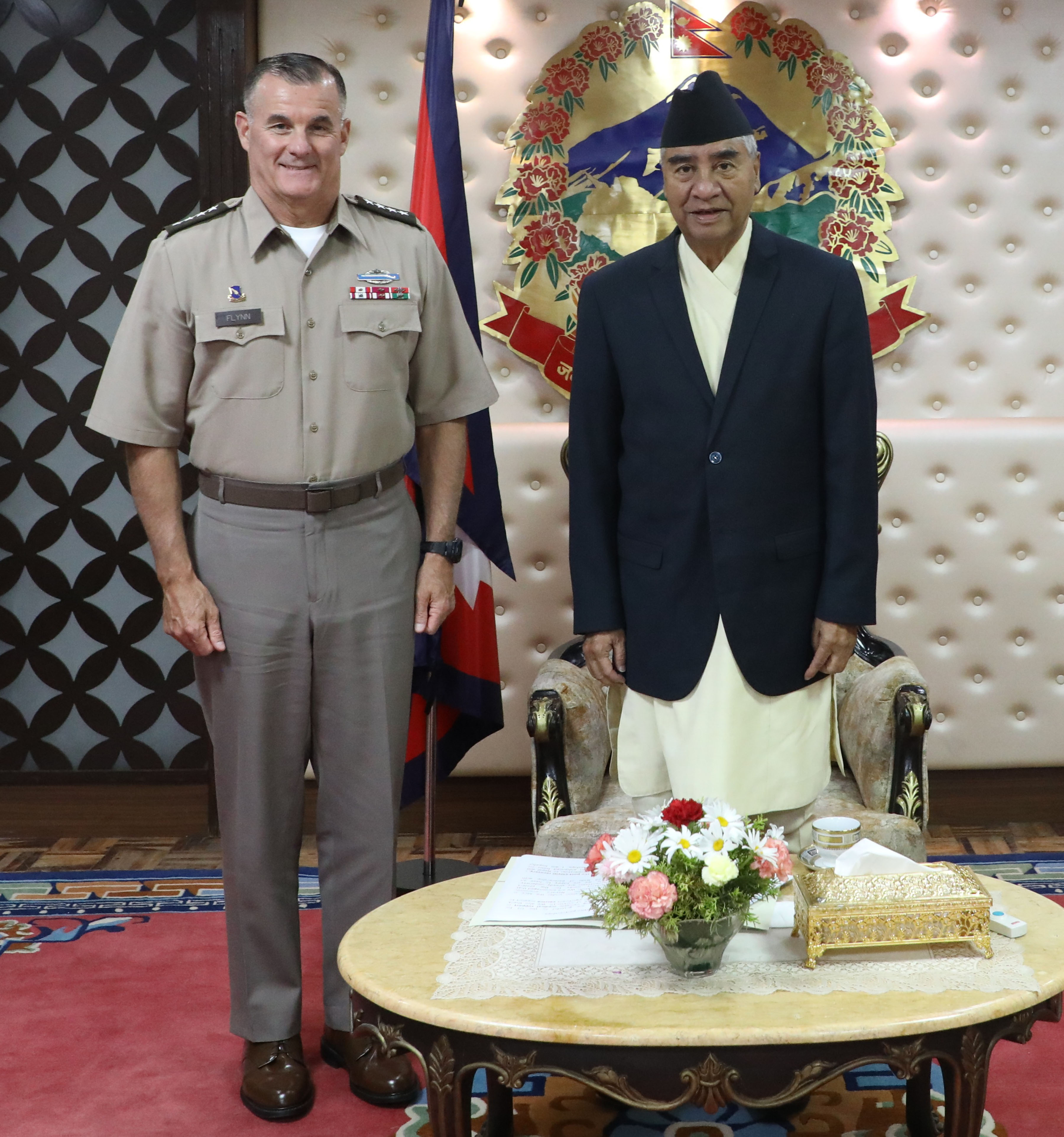
It is not clear whether the SPP is part of the US-led Indo-Pacific Strategy.
The first report on Indo-Pacific Strategy released in 2019 by the Pentagon had mentioned that Nepal and Sri Lanka were recent entrants to the State Partnership Program but the next report released in 2021 is silent on Nepal’s participation in the State Partnership Program and the Indo-Pacific Strategy.
The US first came up with the concept of the SPP in 1993 as a humanitarian and disaster response training programme.
When Nepal first requested the US government to become part of the SPP in 2015, Rajendra Chettri was the Nepal Army chief.
Negotiations, however, stalled with the American side due to the internal political situation of Nepal as the country was reeling under a border blockade, frequent government changes and election cycle, a senior security official familiar with the developments told the Post.
After the parliamentary elections in 2017, the US side started showing interest and during the visit of US Assistant Secretary of Defense for Indo-Pacific Security Affairs Randall Schriver, the issue surfaced again.
During a meeting with Schriver, then defence minister Ishwar Pokhrel, who is also a senior leader of the CPN-UML, communicated that Nepal was positive about joining the SPP.
The then government led by UML chair KP Sharma Oli had formed a team of senior officials from the Ministry of Foreign Affairs, Ministry of Defence and Nepal Army to study the draft of the SPP and make recommendations.
The process, however, was stalled again due to the Covid pandemic and a halt in official visits between Nepal and the United States.
According to the senior security official, the US side, however, kept on insisting that Nepal sign the SPP.
The leaked six-page draft agreement with 10 articles talks about an agreement between the Nepal Army and the Utah National Guard.
The US actually made a renewed push for the SPP in the midst of controversy surrounding the MCC.
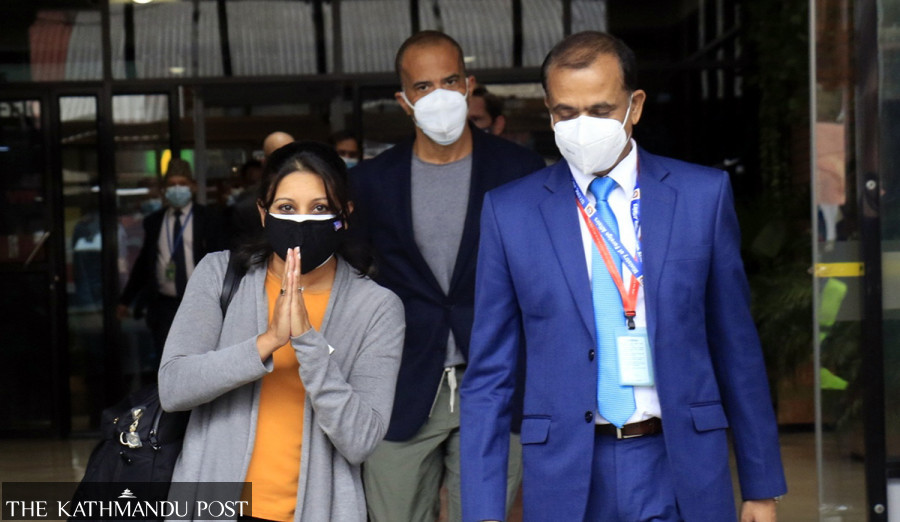
Then defence minister Minendra Rijal was invited to Washington as well. But his travel plans were suspended after he resigned as defence minister following his defeat in the party’s elections.
“I was invited to the US and discussions on the SPP were likely with senior officials of the Utah National Guard of the US,” Rijal told the Post. “To me, it is a humanitarian assistance programme and it is not linked with any strategic partnership.”
“I can’t answer whether the government will sign the SPP or not because I am not part of the government,” he added.
After Rijal’s two-week-long US visit was cancelled, during the Nepal visit of Adjutant General at Utah National Guard, Major General Michael J Turley in April, the latter handed over a revised draft agreement of the SPP to Prime Minister Deuba and Gen Sharma, which was followed up by Flynn.
During their meetings with Flynn, neither the prime minister nor the army chief, however, committed anything except saying they will positively consider the request, according to officials familiar with the matter.
“It’s barely four months since the MCC ratification. General and provincial elections are just round the corner. If the prime minister signs the SPP, it will be a disaster,” said an office bearer of the Nepali Congress, Prime Minister Deuba’s party. “The statement by Foreign Minister Khadka in the House, however, makes it look like the government is committed to signing the SPP with the US. But we will not allow the government to do so without taking consent from the party and the ruling alliance.”
Nepal’s non-alignment policy lately has come into question from some sections with critics saying the incumbent Deuba government is tilting towards the US, ignoring the immediate neighbour to north—China.
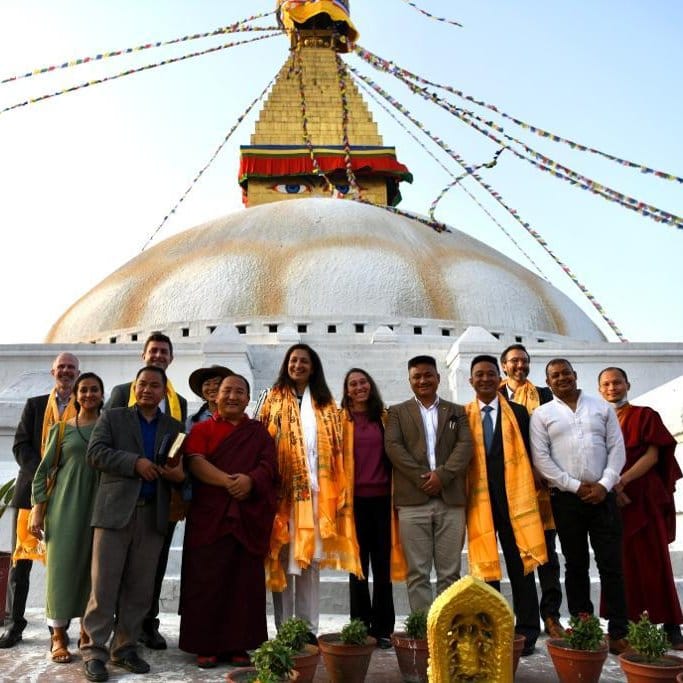
Beijing, which opposed MCC ratification, sees the US grant as part of the Indo-Pacific Strategy which it believes is aimed at countering China and its Belt and Road Initiative.
Politicians and members of the public were quick to take to social media to express their opinions as soon as the SPP draft agreement was leaked.
“With the threat of a new cold war looming in the Himalayas, let's not rush into a 10-point State Partnership Program (SPP) agreement with the United States,” former prime minister Baburam Bhattarai, who had rallied for MCC ratification, wrote on Twitter. “Let’s look at geopolitical sensitivities.”
A former Nepali ambassador to the US told the Post that Nepal first requested the US government and later the Utah State agreed to assist the Nepal Army through its national guard.
“The provincial army in the US is called National Guard and Utah has geographical similarities with Nepal. So they agreed to cooperate with the Nepal Army,” said the former ambassador, asking not to be named. “And it is not part of the US-led Indo-Pacific Strategy because SPP has reached an agreement with many African and East European nations. Do Africa and East European nations fall under the Indo-Pacific Strategy? No.”
According to the former envoy, the opposing voices are uncalled for.
“Our several former prime ministers and foreign ministers have in the past intimated to the US that Nepal was interested to join the SPP,” said the ambassador.
Amid reports claiming Nepal is preparing to join the SPP and the draft agreement leaked to the media, the Nepal Army, however, has denied having received any such proposal.
“The Nepal Army has not received any official or unofficial draft of the SPP from any sources,” Brigadier General Narayan Silwal, spokesperson for the Nepal Army, told the Post. “The way some sections of the media are reporting about the draft of the SPP is not true. We have not received it.”
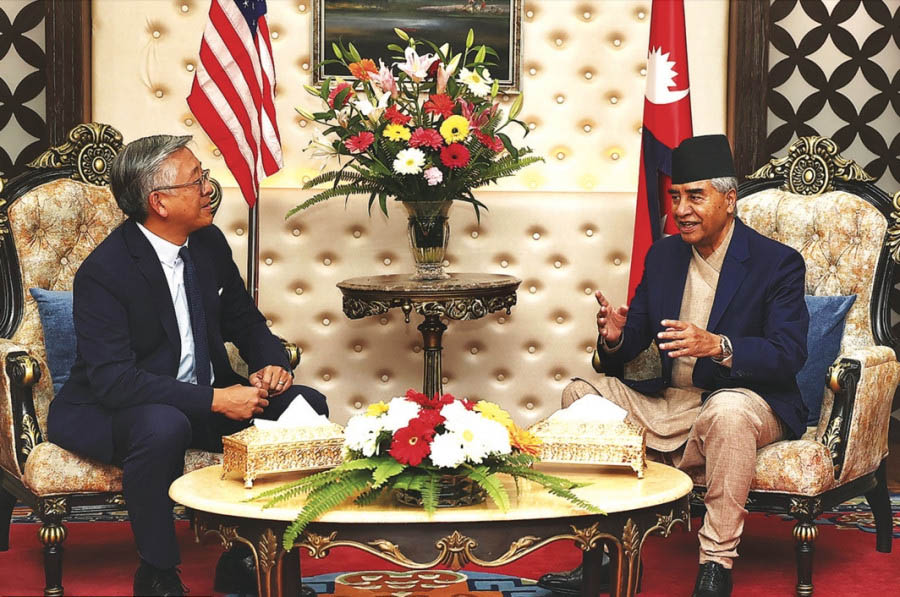
In an email response to the Post, the US embassy in Kathmandu said that the State Partnership Program (SPP) is a military-to-military exchange that in Nepal’s case, and at Nepal’s request, is focused on humanitarian and disaster response capability enhancement.
“SPP is not linked with IPS and has existed for over 25 years and includes over 80 partnerships with over 90 countries, pre-dating the Indo-Pacific strategy. This training and assistance program is not related to any geopolitical dynamic,” said the embassy.
“In the event of natural and other disasters, ranging from hurricanes to earthquakes, floods, and fires, the United States seeks to share the best practices and capabilities of our National Guards — our first-line responders. SPP is an effective means in facilitating this type of information sharing,” added the embassy. “During the 75 years of our bilateral relations, the United States has consistently worked with the government of Nepal to provide help to people in crisis – most recently during the Covid-19 pandemic and the 2015 earthquake.”
“The United States is committed to continuing to do so, and the State Partnership Program is another example of this cooperation,” it added.
On Tuesday evening, the embassy put out a public statement regarding the draft agreement being reported by the Nepali media.
“The document published by some online outlets purporting to be a military deal between the United States and Nepal is fake,” said the embassy. “By policy, the United States does not ask countries to join the State Partnership Program and only responds to requests for consideration.”
“The State Partnership Program is an exchange programme between an American state’s National Guard and a partner foreign country,” it added. “The US National Guard domestically supports US first responders in dealing with natural disasters, such as earthquakes, floods, and wildfires.




 22.12°C Kathmandu
22.12°C Kathmandu














